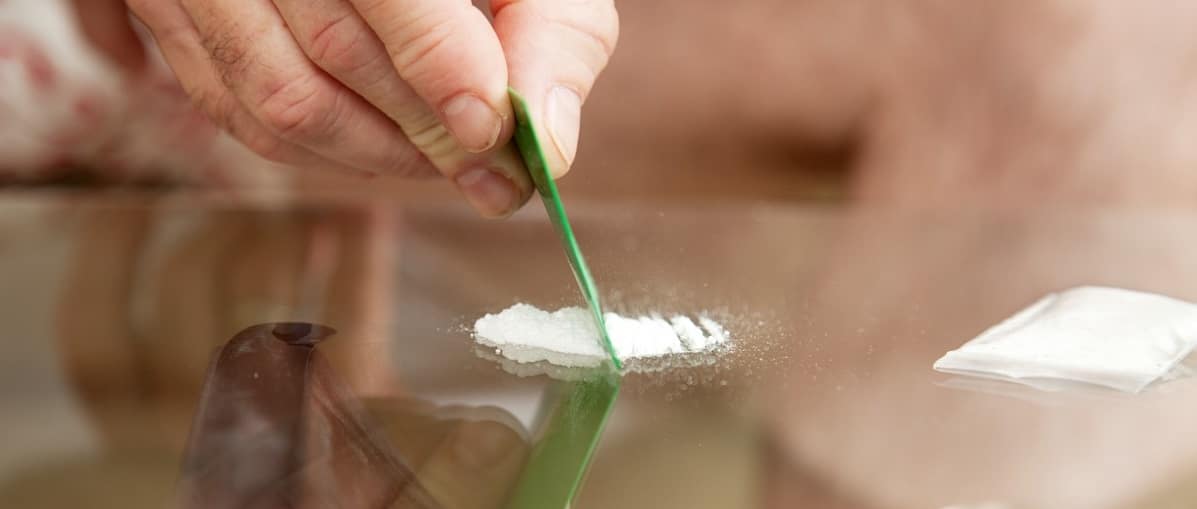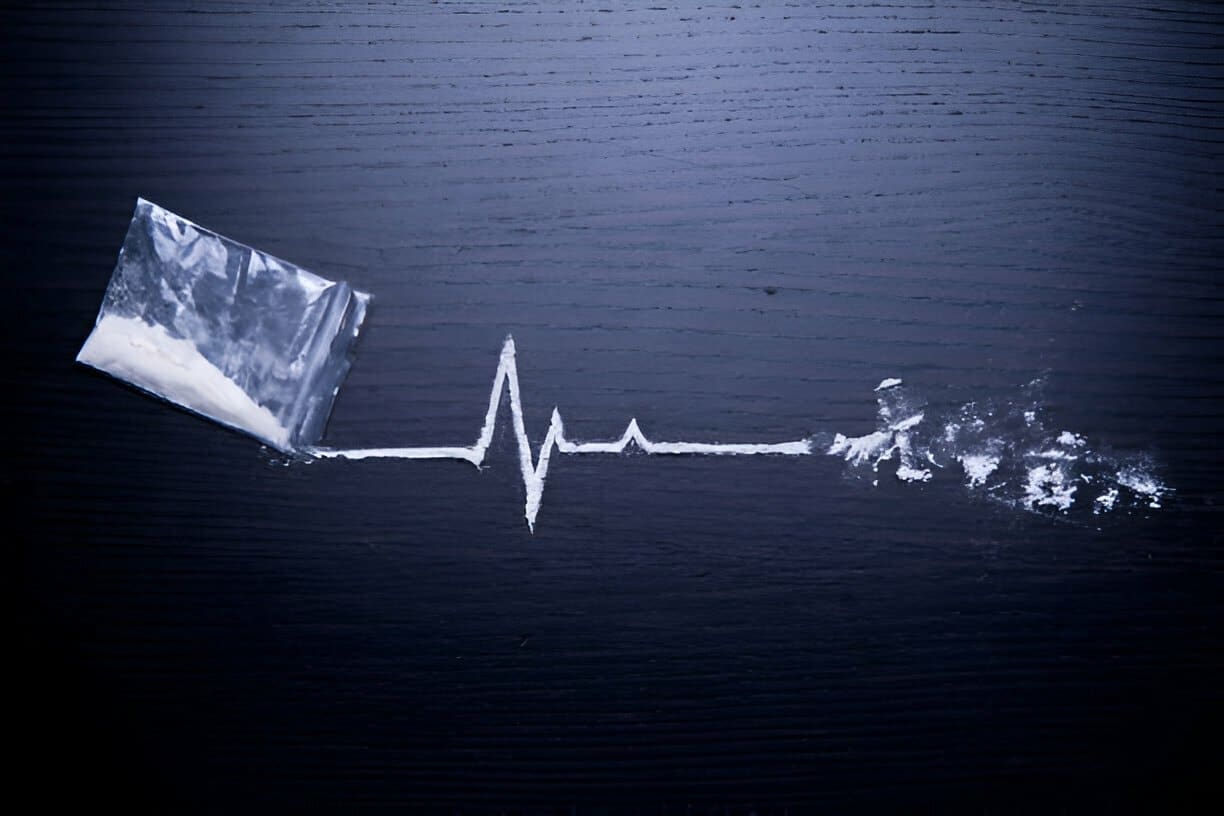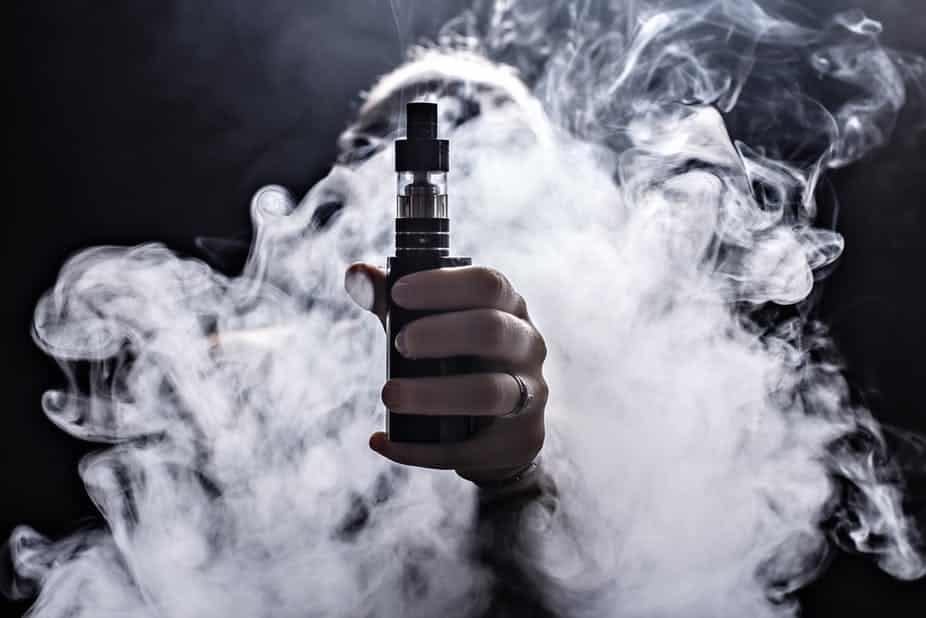Start exploring drug and alcohol rehabs today. Treatment providers are available to answer your questions.
Amphetamines are a class of central nervous system (CNS) stimulants, which excite the central nervous system, resulting in feelings of confidence, focus, higher energy and even euphoria. They originate from the substance amphetamine. Amphetamines usually come in the form of pills.
Amphetamines are also known as “uppers” and “speed” as they speed up messages between the brain and the body. Some types of amphetamines are legally prescription stimulants used by doctors to treat conditions such as attention deficit hyperactivity disorder (ADHD), narcolepsy, depression and obesity.
Illegal amphetamines are also taken as recreational drugs. The controlled substances methamphetamine (“crystal meth”) and MDMA (“ecstasy”) are other well-known drugs from the amphetamines class.
Amphetamines and similar drugs are available under a variety of brand names. The most commonly prescribed amphetamines are Dexedrine, Adderall and Ritalin.
Both legal and illegal amphetamines are highly disruptive and addictive when used recreationally.
Drug use among students is not rare because they believe it results in high focus and increased energy that will enable them to do better in school, but the opposite is true. Amphetamines Addiction is a serious problem that requires immediate attention. Call us on 0800 999 1083 to discuss treatment options.

Amphetamines may be administered orally, intranasally or intravenously. The peak response occurs one to three hours after oral administration or approximately 15 minutes after injection.
Stimulants like Amphetamines act by increasing the release of norepinephrine and dopamine. Amphetamines stimulate NE and DA neurons in the locus ceruleus, nucleus accumbens, hypothalamus, amygdala, hippocampus, and prefrontal cortex. Dopamine stimulates LC, amygdala, and ventral tegmental area. Norepinephrine stimulates VTA, amygdala, and LC.
Amphetamines increase norepinephrine activity by stimulating its release and preventing it from reabsorbing into nerve cells.
When you take amphetamine, your body releases dopamine. Dopamine controls pleasure, motivation, attention, and concentration. When you take an amphetamine tablet, your body releases more dopamine than usual. This extra amount of dopamine makes you feel happy and energetic.
Taking amphetamines over long periods of time leads to the depletion of dopamine stores in your brain. As a result, you may experience depression and other mood alterations and mental disorders.
The reason why amphetamine abuse is so common is simple. It is very easy to obtain and relatively inexpensive. Most people who abuse amphetamines do not know how dangerous it is. They often believe that amphetamines are safer than alcohol or heroin. Another factor contributing to its popularity is that many people believe that amphetamines make them smarter. There is no scientific evidence to support this belief.
Don’t go through the process of recovery alone. Treatment providers can answer your questions. Get in touch with one today.
Call 0800 999 1083 today!
Stimulant drugs such as amphetamines and methamphetamine are similar. They accelerate the transmission of information from your brain to the rest of your body.
In the short-term, both can make you feel some pleasurable effects:
However, there are some significant differences between amphetamines and methamphetamines. When recommended by a doctor, prescription amphetamines are legal to use. If you take them without a prescription, you’re breaking the law. Misusing them as a study aid or to get high can lead to addiction, an overdose, and other health problems.
The molecular structure of this substance is comparable to that of amphetamines. Doctors occasionally prescribe legally produced methamphetamine to treat ADHD and obesity.
“Meth” is a highly addictive substance that can be smoked, snorted, swallowed, or injected. However, illegal street forms of this stimulant are significantly more common. Illegal substances such as Meth can be harmful to your health in various ways soon after you start using them. You’ll be more likely to experience long-term issues if you continue to use it.
Methamphetamine is more potent than amphetamines. Much more of it enters your brain at comparable levels. And the injury it causes to your central nervous system is far more severe and long-term.
If your loved one needs support dealing with an Alcohol Addiction, contact us today on 0800 999 1083. We can help you by recommending treatment options.
Amphetamines work by increasing levels of dopamine and norepinephrine in the brain.
Dopamine receptors are found throughout the body, and these neurotransmitters play essential roles in regulating many physiological processes. Norepinephrine is involved in arousal, attention, memory, and learning. Amphetamines increase levels of both dopamine and norepinephrine, which results in improved mood, wakefulness, and motivation.
When you take amphetamines, your brain releases more dopamine and norepinephrine than usual. This causes a feeling of well being and energy. But over time, the brain becomes dependent on these two chemicals. The more you use amphetamines, and the more your brain needs them to maintain regular brain activity.
When you take amphetamines regularly, you may develop tolerance to their effects. Tolerance increases the drug used to achieve the same effect. Your brain also develops a resistance to the drug. This means that you need to increase the dose of amphetamines to get the same response.
Dopamine affects how we learn and remember things, while norepinephrine helps us focus our attention. These neurotransmitters are involved with feelings of pleasure and reward. When these chemicals build up too much, they can cause depression, aggression, and psychosis.

Amphetamines are highly addictive stimulant drugs that produce feelings of energy, focus, and alertness. They also increase heart rate and blood pressure. Addiction to amphetamines is a severe health problem that affects millions of people around the globe.
When you use amphetamines, your body adapts to the presence of these substances. Tolerance develops after repeated administration of amphetamine. Tolerance means that the user needs higher doses to produce the same effects.
After prolonged exposure to high doses of amphetamine, tolerance may lead to physical dependence. Physical dependence occurs when withdrawal uncomfortable symptoms develop upon cessation of chronic amphetamine use, whether they be psychological, behavioural or physical symptoms. Withdrawal symptoms include anxiety, insomnia, irritability, tremors, sweating, shakiness, muscle cramps, nausea, vomiting, diarrhoea, headache, restlessness, and decreased appetite. This, in turn, makes it more difficult to stop using amphetamine.
Prolonged abuse of amphetamines causes severe side effects, including anxiety, agitation, paranoia, hallucinations, rapid heartbeat, high blood pressure, insomnia, and seizures. Overdose from amphetamines can be fatal.
Speak to us on 0800 999 1083 to discuss treatment options and to find the best alcohol rehab centre.
Amphetamines can be used recreationally as performance enhancers. Recreational use typically involves taking doses of amphetamines orally or sublingually. Another common method of abuse is snorting the powder directly from the container. Snorting may lead to nasal septum perforations, which may require surgical repair. Other forms of abuse include smoking, intravenous injection, and rectal insufflation.
Amphetamine addiction can develop after repeated use over an extended time. Repeated use of amphetamines leads to tolerance, defined as a need for increasing amounts of the substance to achieve the same effects. Tolerance develops quickly: tolerance to amphetamines usually begins within one week of regular use. Withdrawal symptoms occur when the user stops using amphetamines abruptly. These withdrawal symptoms include anxiety, restlessness, irritability, insomnia, and tremors.
Physical dependence occurs when the body becomes accustomed to the presence of a particular chemical. It does this through the production of receptors that respond to the chemical.
These receptors are found throughout the body. As long as the chemical is present, the receptors continue to function normally.
However, when the chemical disappears, the receptors begin to malfunction. This causes all sorts of problems.
For example, the body stops producing normal quantities of hormones. This may result in abnormal growths forming in various parts of the body.
In addition, the brain begins to degenerate. This leads to loss of mental abilities. As a result, the person suffering from amphetamines physical dependence experiences intense cravings for the drug.
If the person tries to quit using amphetamines, they will feel highly uncomfortable, displaying various physical symptoms, until the body adjusts to its absence. This is why many amphetamine addicts find it very difficult to stay off their drugs.
Psychological dependency describes an emotional attachment to a substance. People addicted to amphetamines often develop strong feelings towards the drug.
They will think about the substance constantly. They will also have difficulty controlling their thoughts. When people suffer from psychological dependence, they tend to have severe cravings for the substance. They also experience anxiety and fear if they cannot get hold of the drug.
Some of the signs of psychological dependence include:
• Craving for the substance
• Difficulty controlling thoughts
• Anxiety and fear if the substance is unavailable
• Feeling restless and agitated without the substance
• Thinking about the substance continuously
• Having a sleep disorder
• Being unable to concentrate
• Experiencing mood swings
• Failing to complete tasks
• Using more than intended
• Developing tolerance
• Turning to alcohol or other drugs to cope with withdrawal also leads to a need for alcohol rehab.
If your loved one needs support dealing with an Alcohol Addiction, contact us today on 0800 999 1083. We can help you by recommending treatment options.
Symptoms of amphetamines addiction vary depending on the person. Some people experience withdrawal symptoms after stopping amphetamines use. Others develop tolerance to the effects of amphetamines over time.
When this happens, users need higher doses of the stimulant to achieve the same effect. As a result, they start using amphetamines again sooner than before.
Other signs of amphetamines addiction are:
Don’t go through the process of recovery alone. Treatment providers can answer your questions. Get in touch with one today.
Call 0800 999 1083 today!
Preventing amphetamines abuse requires education and awareness. Learn about the risks associated with amphetamines. It is crucial to understand how amphetamines work to know what to avoid.
You should also be aware of your own personal triggers. If you know what makes you want to take amphetamines, you will control yourself.
In addition, it is important to discuss potential amphetamine addiction with your doctor. Your doctor can also refer you to a specialist for further assistance. They can provide advice and information on how to prevent amphetamines abuse.
These specialists are trained to treat amphetamine addicts. They can give you the tools necessary to stay clean.
Amphetamines Addiction is a serious problem that requires immediate attention. Call us on 0800 999 1083 to discuss treatment options.

There are many causes of amphetamines addiction. Most of these factors are related to personality traits and lifestyle choices. However, some risk factors increase the chances of developing an amphetamines problem.
For example, certain medical conditions can make you vulnerable to amphetamines abuse. These include:
Genetic factors play a role in amphetamines addiction. However, environmental factors are more likely to trigger the development of this condition.
People with genetic predispositions to amphetamines addiction are most likely to experience addictive symptoms when they use amphetamines.
This means that if someone has a family member who was diagnosed with amphetamines addiction, they are more likely to develop this condition than someone without a family history of amphetamines addiction.
However, genetics alone cannot explain why some people develop amphetamines addiction while others don’t. Environmental factors may contribute to the development of amphetamines addiction in some individuals. Such risk factors include:
• History of violence
• Being a victim of sexual abuse
• Early exposure to amphetamines
• Unstable home environment
• Poverty
• Stressful life events
• Childhood trauma
• Low self-esteem
• Use of other drugs
• Lack of parental supervision
• Peer pressure
• Poor social support systems
• Exposure to unsafe environments
• Abusive relationships
• Frequent moving
• Lack of education
• Financial difficulties
Individuals who are genetically predisposed to amphetamines addiction tend to be male and Caucasian.
They also tend to be younger than those not genetically predisposed to the condition. Furthermore, men who were abused as children are more likely to develop amphetamines addiction. This is because they are more susceptible to stress and anxiety than women.
Women who were sexually abused as children are also more likely to develop amphetamine addiction. This is because these women have post-traumatic stress disorder.
Children whose parents neglected them are also more likely to become amphetamines addicts. These children often lack proper care, guidance and love from their parents.
There are many resources available to help those affected by a behavioural addiction. These include counselling services, self-help groups, and medical treatments.

Several side effects characterize amphetamine addiction. These include:
Amphetamines are one of the most widely abused drugs in the world today. They have been linked with many health risks, including heart disease, stroke, high blood pressure, liver damage, kidney failure, seizures, psychosis, depression, anxiety, paranoia, aggression, violence, suicide, and even death.
People who take amphetamines recreationally may experience extreme feelings of energy, confidence, and happiness. This is why amphetamines are often called “speed” among users. However, this feeling is short-lived because it comes at a price.
Some people also believe that using these stimulants will help them lose weight. But this is only true if you use amphetamines for weight loss purposes. If you are abusing them, then your body will gain weight instead of losing it.
Another misconception about amphetamines is that they make you more sexually active. However, this is untrue. Using amphetamines regularly can actually reduce sex drive.
Over time, amphetamines can change your brain chemistry in ways that affect your mood, behaviour, and ability to think clearly. Long-term amphetamine abuse causes serious long-term health problems.
These problems include:
• Heart disease. People who abuse amphetamines have high blood pressure, irregular heartbeats, and decreased ability to exercise. Their hearts are smaller than average, and they have higher cholesterol levels.
• Stroke. According to the National Institute of Neurological Disorders and Stroke, “Strokes caused by amphetamine use are usually large and occur suddenly.
• Brain damage. A study published in the Journal of Neuroscience found that chronic amphetamine users had damaged nerve cells in their brains. This damage was permanent and could be detected even after the user stopped using amphetamines.
• Psychosis. Psychosis is a severe mental illness characterized by hallucinations and delusions. Psychotic episodes may occur during periods of abstinence from amphetamines. Stressful situations usually trigger them.
• Cognitive Impairment. Regular use of amphetamines reduces cognitive function. For example, it can impair memory and concentration.
• Other Problems. People who take amphetamines often experience other side effects, with serious negative consequences. Amphetamine abuse can lead to:
Speak to us on 0800 999 1083 to discuss treatment options and to find the best alcohol rehab centre.
While many users only consume small amounts of the drugs, others overdo it. If you think that you or someone else may be overdosing on amphetamines, you should seek help immediately.
According to the National Institute on Drug Abuse, more than half of all meth addicts die from an overdose.

When a person overdoses on amphetamines, they will feel nauseous and vomit.
They may also develop muscle tremors, agitation, seizures, and hallucinations.
Overdoses usually occur when users mix amphetamines with alcohol or sedatives. They then combine the two substances in one shot. This is called “speedballing.”
Speedballs are extremely dangerous because the two substances create a toxic reaction. Death from speedballs is common among young adults.
The National Institute on Drug Abuse reports that people who abuse amphetamines are at high risk for suicide. Many users commit suicide after becoming addicted to the drug.
Stimulant use such as cocaine and amphetamine is associated with a nearly two-fold greater likelihood of suicidal behaviour.
Speak to us on 0800 999 1083 to discuss treatment options and to find the best alcohol rehab centre.
It is important to note that co-occurring mental health disorders are prevalent among those who abuse amphetamines. If you think that you might have any of these disorders, it is best to consult a doctor as soon as possible.
Amphetamines are highly addictive and can trigger mental health problems, such as a mental health disorder.
Studies found that about 25% of people who abused amphetamines had comorbid disorders. These included anxiety disorders, depression, bipolar disorder, obsessive-compulsive disorder, attention deficit hyperactivity disorder, post-traumatic stress disorder, and borderline personality disorder.
People who have these conditions often use amphetamines to self medicate. In other words, they take amphetamines to relieve their symptoms.
Many people who abuse amphetamines do so because they feel depressed. They believe that taking drugs will make them happy.
When they experience negative emotions, they turn to amphetamines. The problem with this strategy is that it does not work. Instead, it causes serious harm.
Amphetamines Addiction is a serious problem that requires immediate attention. Call us on 0800 999 1083 to discuss treatment options.
Teen amphetamine addiction is widespread. Usually, teens begin experimenting with amphetamines when they are between 13 and 17 years old.
Teen amphetamine addiction often begins after a period of experimentation. Then, they move on to mixing them with alcohol. Eventually, they progress to other substances. This is why addicts sometimes need also alcohol rehab alongside amphetamines addiction treatment.
Adolescents who abuse amphetamines are more prone to engage in risky behaviours. They are more likely to attempt suicide, self-harm, and neglect their studies.
Parents need to pay close attention to their children’s activities and habits. They must keep an eye out for unusual patterns in their behaviour. If they notice anything suspicious, they should immediately contact their child’s doctor.
Amphetamines Addiction is a serious problem that requires immediate attention. Call us on 0800 999 1083 to discuss treatment options.
If your loved one suffers from amphetamines addiction, they need immediate medical care.
They will need to enrol in a detox programme.
In addition, they will need counselling and rehabilitation services. The goal of rehab is to teach addicts how to live a healthy life while abstaining from drugs.
They learn coping mechanisms to deal with stress and anxiety during this process. They also receive support from peers and professionals. When all these therapies are combined, the chances of success are much higher.
There are several warning signs associated with amphetamines addiction. These include:
An intervention is a formal meeting where family members, friends, and healthcare providers discuss the person’s addiction and the possible course of treatment.
This helps them understand what led to the addiction and how to prevent future relapses.
The purpose of staging an intervention is to make sure that everyone involved understands the seriousness of the issue.
Afterwards, if they agree on a plan of action, it’s time to discuss treatment options.

Stopping amphetamine abuse is possible. However, it takes time and effort. To stop abusing amphetamines, you must first understand what led you to start using amphetamines in the first place. Then you must find ways to cope with stress without turning to drugs. Finally, you must learn new behaviours that will help you avoid getting hooked again.
If you suspect that your loved one has an amphetamine addiction, then you need to get them help as soon as possible. Do not wait until the problem gets worse.
If your loved one needs support dealing with an Alcohol Addiction, contact us today on 0800 999 1083. We can help you by recommending treatment options.
Once you have decided to seek treatment for amphetamine addiction, you must find a program that suits your specific needs.
There are three main types of treatments for amphetamine addiction. Treatment focuses on reducing cravings, managing withdrawal symptoms, and preventing relapse.
It is essential to diagnose amphetamine addiction early. This way, you can start treatment before the condition worsens.
Your doctor may order blood tests to check for the presence of amphetamines in your system.
They may also ask you some questions regarding your use of the substance.
In addition, they might perform a mental health assessment.
Withdrawal symptoms occur after you quit taking amphetamines.
These include anxiety, depression, insomnia, restlessness, tremors, sweating, shakiness, nausea, vomiting, diarrhoea, headaches, and muscle aches.
Depending on the severity of your addiction, these symptoms last anywhere between 2 days and 2 weeks.
During this period, you must be very careful. You could hurt yourself if you try to retake amphetamines.
This is why you must go through a medically supervised detoxification process. This step aims to reduce the number of amphetamines in the body.
There are several ways to accomplish this. One method involves administering medications to block the reuptake of dopamine. Another option is to administer methadone or buprenorphine.
Both of these substances act like opiates. They bind to opioid receptors in the brain and produce similar well-being feelings. However, unlike opioids, they do not lead to tolerance or dependency.
Instead, they reduce cravings and withdrawal symptoms. They are safe alternatives to other drugs used during detox.
There are different methods available to treat amphetamines addiction. Some of these include:
Outpatient Programs
In outpatient treatment programs, patients attend weekly or biweekly meetings to receive counselling and group therapy. Patients also participate in individual sessions with a therapist. Outpatient programs typically last between six months and one year.
Intensive Outpatient Programs
Intensive outpatient treatment programs typically last between 12 weeks and 18 months. These programs focus on teaching patients how to live without drugs. They teach coping skills, stress management techniques, and other strategies to deal with cravings.
Inpatient Programs
Costs vary depending on where you live and what kind of facility you choose. Inpatient facilities typically cost more than outpatient facilities. It would be best to discuss your options with a doctor before choosing a particular treatment centre, depending on your personal circumstances.
Aftercare Programs
Some programs offer aftercare services to help patients maintain sobriety once they leave the rehab clinic. Aftercare programs typically last between six and 24 months. Aftercare services may include counselling, AA meetings, or other support groups. Many
Don’t go through the process of recovery alone. Treatment providers can answer your questions. Get in touch with one today.
Call 0800 999 1083 today!
Therapy sessions will continue throughout the course of your loved one’s stay at rehab. The goal of these sessions is to ensure that your loved one learns how to live a healthy lifestyle free from amphetamines abuse.
Individual Therapy
Individual therapy provides an opportunity for your loved ones to discuss their thoughts and feelings without being judged. In addition, it allows them to express their emotions freely.
Group Therapy
Group therapy is beneficial because it gives your loved one the chance to share experiences with other individuals who have been through similar situations.
Cognitive Behavioural Therapy
CBT is a form of psychotherapy that focuses on changing how someone thinks and behaves. CBT teaches your loved one how to identify negative thinking patterns and replace them with positive ones, avoiding the adverse consequences of negative thinking.
Interpersonal Psychotherapy
IPT is a form of cognitive behavioural therapy that focuses on helping your loved one learn to relate better to others.
Counselling
Counselling helps you understand why you started using amphetamines and how to deal with any underlying issues that led to your addiction. Counsellors also provide advice about coping strategies and ways to avoid relapsing back into substance abuse.
Family Counseling
Family counselling is a great way to help your loved one deal with their family’s reactions to their addictions.
If you decide to quit amphetamines, here are some tips for doing so successfully and preventing a relapse:
Stick to a schedule. The best way to prevent amphetamine abuse is to stick to a routine. Go to bed early and wake up early. Exercise daily and limit caffeine intake.
There are several ways to get support from others who understand what you’re going through.
You can join a local support group, attend a 12-step programme, or find online forums to discuss your experiences with others.
Support groups usually meet regularly at a community centre or church hall. They provide a safe environment where members can talk freely about their problems without fear of being judged.
12-Step programmes work like this:
People who participate in these programmes often report feeling better about themselves after completing all twelve steps. However, they still face challenges because the process doesn’t end once they complete the programme. That’s why it’s crucial to maintain contact with other recovering addicts. Online forums are another way to connect with others who know what you’re experiencing.
According to a report of the Office for National Statistics (from March 2019 to March 2020):

BACP accredited psychotherapist with 16 years experience working in mental health specialising in psychodynamic person-centred therapies treating those with a range of mental health disorders including anxiety, depression, OCD and Addiction.

Fill in your details and we’ll send you a message via SMS.


No matter where you live, there are drug and alcohol rehab options for you to discover. Treatment providers are waiting to answer your questions. Get started today.

Ever felt that gnawing ache or burning sensation in your gut after a night of drinks? You’re not alone. Stomach pain after drinking is a common complaint, and there are a few reasons why it might happen. Let’s delve into the science behind the discomfort and explore ways to soothe your stomach. The Irritating Truth: … Continued

Cocaine, a stimulant known for its short-lived burst of energy and euphoria, hides a dark side. Behind the initial high lies a dangerous potential for overdose, with severe health consequences and even death. This article delves into the world of cocaine overdose, equipping you with the knowledge to recognize the signs, understand the dangers, and … Continued

Adult smoking habits in the UK refer to how often and in what ways people aged 18 and above use tobacco. This includes everything from smoking cigarettes every day to occasionally lighting up, as well as using other tobacco products. Understanding these habits is important for several reasons: Public Health: Smoking causes many diseases that … Continued

Addiction in the UK is a complex issue that is connected to various aspects of society such as healthcare and law enforcement. It affects people from all backgrounds and has negative impacts on families, communities, and the entire nation. Understanding addiction involves not only looking at the uncontrollable use of substances and repetitive behaviors but … Continued

Don’t go through the process of recovery alone. Treatment providers can answer your questions. Get in touch with one today.
Call 0800 999 1083 today!








